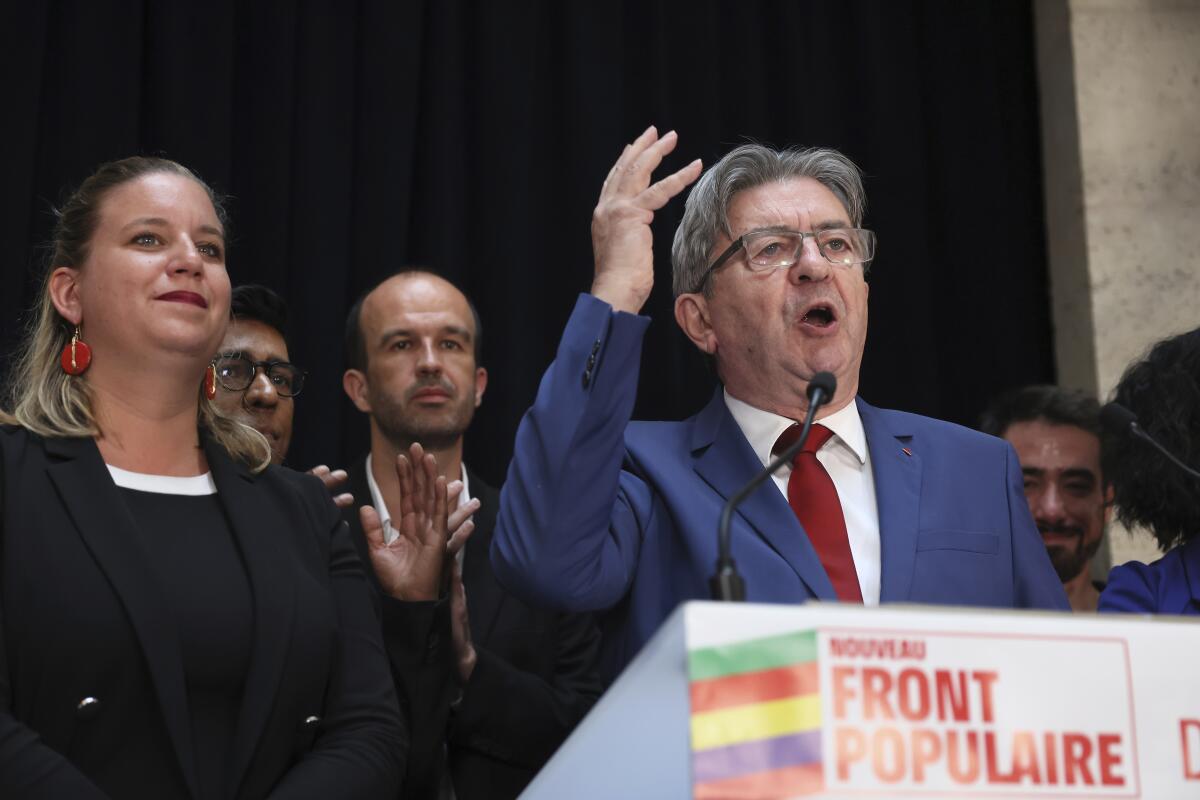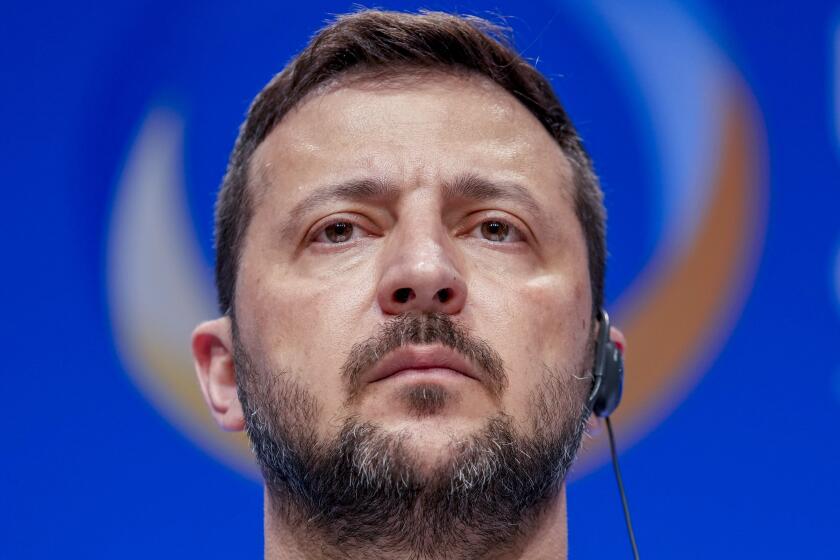French leftists win most seats in snap legislative election

- Share via
PARIS — A coalition on the left that came together unexpectedly ahead of France’s snap election won the most parliamentary seats in the vote on Sunday. The surprise outcome put President Emmanuel Macron’s centrist alliance in second and the far right in third.
The lack of majority for any single alliance threatened to plunge France into political and economic turmoil. The highly volatile snap election, which was called just four weeks ago, was a huge gamble for Macron.
It does not appear to have paid off for the deeply unpopular president, whose alliance has lost control of parliament, according to the projections.
Marine Le Pen’s far-right National Rally greatly increased the number of seats it holds, but fell far short of its hopes of securing an absolute majority that would have given France its first far-right government since World War II.
Downplaying its Nazi past, the far-right National Rally party in France has tried to rebrand itself as an ally of Jews and Israel.
In Paris’ Stalingrad square, supporters on the left cheered and applauded as projections showing the alliance ahead flashed up on a giant screen. Cries of joy also rang out in the Place de la Republique in eastern Paris, with people spontaneously hugging strangers in the plaza and several minutes of nonstop applause after the projections landed.
Jordan Bardella, Le Pen’s 28-year-old protégé who’d been hoping to become prime minister, said the outcome of the vote “throws France into the arms of the extreme left.”
The most prominent of the leftist coalition’s leaders, Jean-Luc Mélenchon, urged Macron to invite the New Popular Front coalition to form a government. The alliance, he said, “is ready to govern.”
Ukrainians displaced by war find new purpose in Shakespeare’s play of love, loss and madness, bringing their blood-red version to the bard’s hometown.
The outcome will spell intense uncertainty for a pillar of the European Union and its second-largest economy, with no clarity about who might partner with Macron as prime minister in governing France. The results will influence the war in Ukraine, global diplomacy and Europe’s economic stability.
A hung parliament with no single bloc coming close to getting the 289 seats needed for an absolute majority in the National Assembly, the more powerful of France’s two legislative chambers, would be unknown territory for modern France.
Ukrainian President Zelensky is all over Europe, including at the G-7. His message? Ukraine’s war with Russia and Putin is Europe’s fight, too.
Unlike other countries in Europe that are more accustomed to coalition governments, France doesn’t have a tradition of lawmakers from rival political camps coming together to form a working majority.
Macron stunned France, and many in his own government, by dissolving parliament after the far right surged in French voting for the European elections.
Macron argued that sending voters back to the ballot boxes would provide France with “clarification.”
But rather than rally behind him, millions of voters on both the left and right of France’s increasingly polarized political landscape seized on his surprise decision as an opportunity to vent their anger.
Leicester, Hinnant and Corbet write for the Associated Press. AP journalists Barbara Surk in Nice, France, and Helena Alves and Alex Turnbull in Paris contributed to this report.
More to Read
Sign up for Essential California
The most important California stories and recommendations in your inbox every morning.
You may occasionally receive promotional content from the Los Angeles Times.













